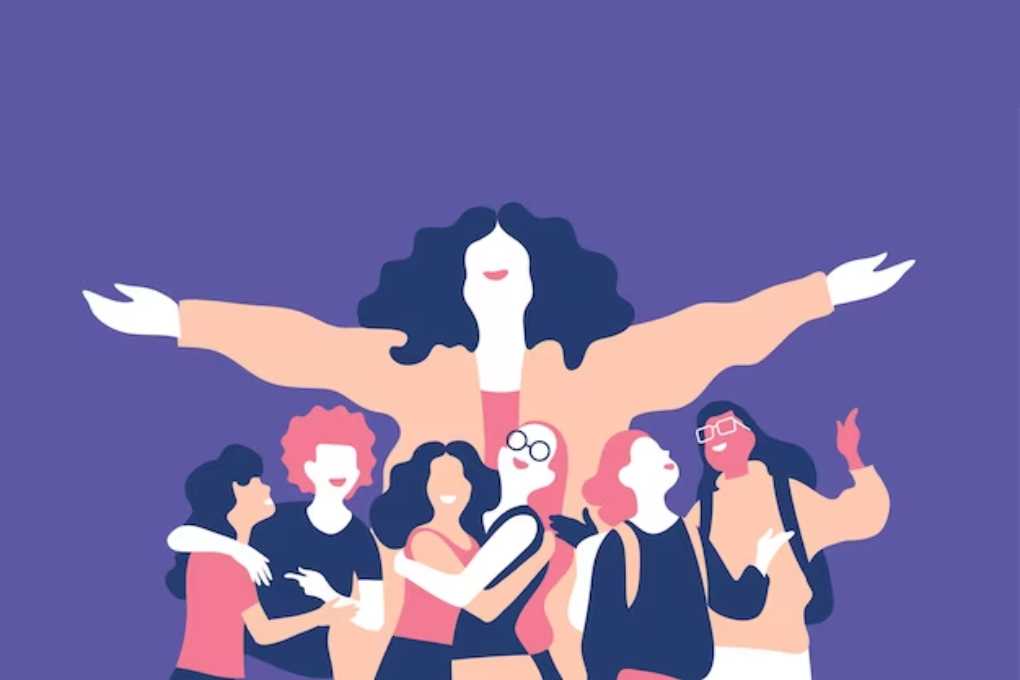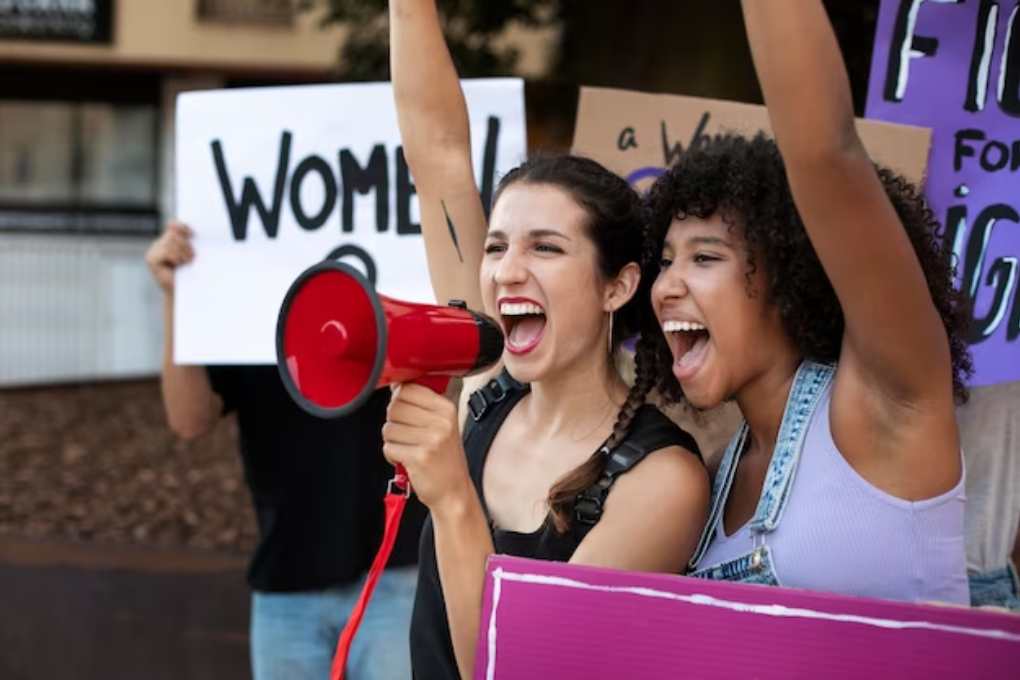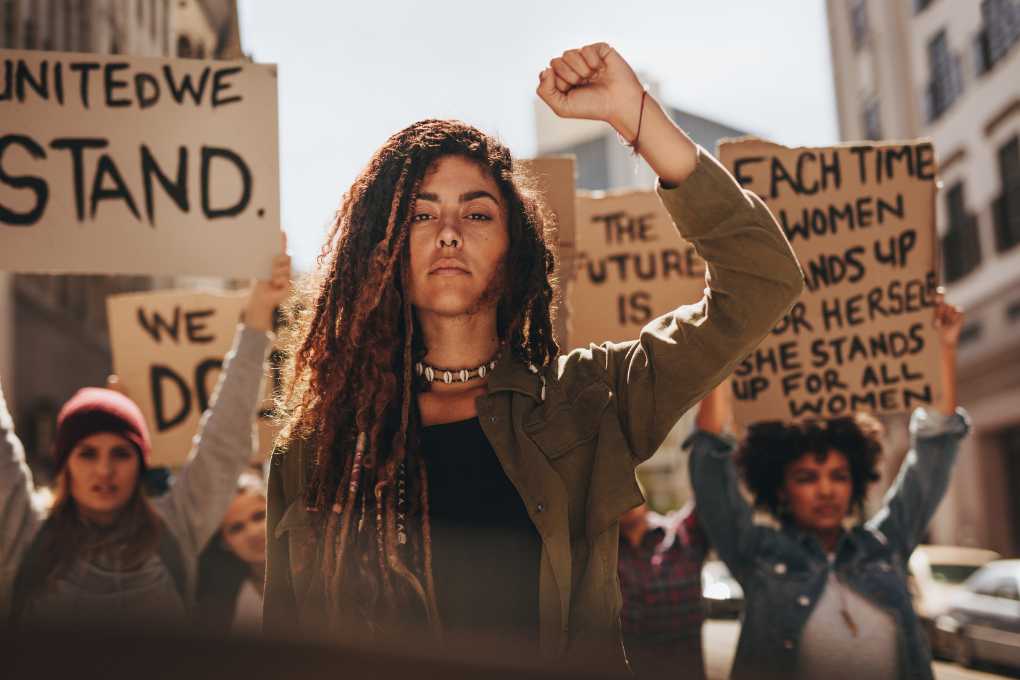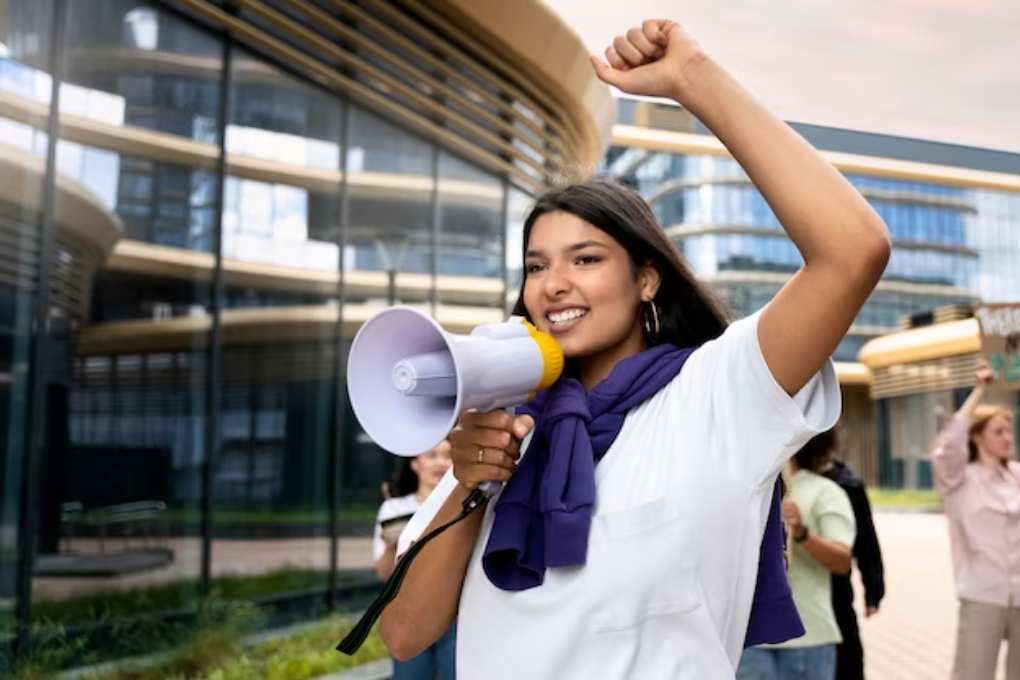Welcome to the empowering world of women! In a society where gender equality is still an ongoing battle, the importance of women’s empowerment movements cannot be overstated. These powerful initiatives have been instrumental in shaping history and challenging societal norms that suppress women’s rights. From fighting for voting rights to advocating for equal pay, these movements have sparked change and inspired millions around the globe.

In this blog post, we will delve into the rich tapestry of women’s empowerment movements throughout history. We’ll explore their origins, current efforts, and remarkable success stories from different countries, and shed light on how individuals can contribute to this transformative cause.
So grab your virtual megaphone as we embark on this journey together, celebrating the strength, resilience, and remarkable achievements of women’s empowerment movements worldwide! It’s time to amplify our voices and pave the way towards a more equitable future for all genders. Let’s dive in!
The History of Women’s Rights Movements
The history of women’s rights movements is a testament to the strength, resilience, and determination of women around the world. From the suffragette movement in the late 19th and early 20th centuries to modern-day feminist activism, women have been fighting for their rights and equality.
In the late 1800s, suffragettes like Susan B. Anthony and Elizabeth Cady Stanton paved the way for future generations by advocating for women’s right to vote. Their tireless efforts led to significant milestones such as the passage of the 19th Amendment in 1920, granting American women this fundamental right.

In more recent years, feminist movements have gained momentum globally. The #MeToo movement emerged in 2006 but gained widespread attention in 2017 when survivors began sharing their experiences of sexual harassment and assault. This powerful movement sparked conversations about consent, accountability, and gender equality.
Women’s rights movements have also focused on issues such as equal pay, reproductive rights, access to education and healthcare, and ending gender-based violence and discrimination. These movements strive not only for legal changes but also seek to challenge societal norms that perpetuate gender inequality.
While progress has undeniably been made over time, with more female leaders emerging worldwide, there are still many challenges ahead. Women continue to face barriers in various aspects of life due to deep-rooted patriarchal systems prevalent across different cultures.
However daunting these challenges may be, they do not overshadow remarkable success stories from around the globe. For example, Rwanda boasts one of the highest numbers of female parliamentarians globally, thanks largely to quotas implemented after its devastating genocide. In Sweden, generous parental leave policies enable men and women alike to balance work and family responsibilities more equitably.
To contribute towards empowering women universally, individuals can support organizations that promote gender equality through donations, volunteering their time in local communities, or global initiatives aimed at supporting girls’ education or providing resources for victims or survivors of gender-based violence.
Current Women Empowerment Movements
Recently, women’s empowerment movements have gained significant momentum around the globe. Women from all walks of life are coming together to challenge gender norms and fight for equal rights and opportunities. A common goal of these movements is to create a world where women can prosper and realize their full potential.
One prominent current women empowerment movement is the #MeToo movement, which started as a social media hashtag and quickly spread worldwide. It has provided a platform for survivors of sexual harassment and assault to share their stories, raising awareness about the pervasive issue and demanding accountability from perpetrators.

Hearse is another noteworthy initiative that UN Women started. This campaign encourages men to actively support gender equality and be advocates for change. By engaging men in conversations about feminism and highlighting the importance of male allyship, this movement aims to create more inclusive societies.
Additionally, there are grassroots organizations like Girls Who Code that focus on closing the gender gap in technology fields. They provide girls with access to coding education and mentorship programs, empowering them with the skills needed for success in STEM careers.
Women’s marches have also become a powerful form of protest against systemic inequalities. From the Women’s March in Washington in 2017 to various international marches since then, these gatherings bring people from diverse backgrounds united under one cause: advocating for women’s rights.
Furthermore, there has been an increasing push for diversity and inclusion in leadership positions across industries. Companies like Catalyst work towards promoting gender equity through research-driven initiatives that encourage businesses to create inclusive workplaces where everyone can thrive regardless of their gender identity.
These current women’s empowerment movements demonstrate that progress is being made towards achieving gender equality globally. However, there are still many challenges ahead that need collective efforts to overcome societal biases, cultural barriers, discriminatory practices, and unequal power dynamics that hinder women’s progress.
As individuals committed to supporting women’s empowerment movements, we can contribute by educating ourselves about intersectional feminism and understanding how different aspects such as race, class, and sexuality intersect with gender. We can also use our voices
Impact of Women’s Empowerment on Society
The impact of women’s empowerment on society is profound and far-reaching. When women are empowered, communities thrive, economies prosper, and societies become more inclusive and equitable.
One significant impact of women’s empowerment is the improvement in education. As more girls have access to quality education, they gain knowledge and skills that not only benefit them but also their families and communities. Educated women can make informed decisions about their health, finances, and family planning.

Another important aspect is women’s economic empowerment. When women have equal opportunities for employment or entrepreneurship, it leads to increased productivity and economic growth. By participating in the workforce, women contribute to household incomes and reduce poverty rates.
Women’s empowerment also plays a crucial role in promoting gender equality. It challenges traditional gender norms and stereotypes by advocating for equal rights, opportunities, and representation for all genders. This creates a more balanced society where everyone has an equal chance to succeed, regardless of their gender.
Moreover, when women are empowered politically, they can influence decision-making processes at various levels, from local communities to national governments. Women’s leaders bring diverse perspectives to policymaking, which fosters greater social progress.
Challenges Faced by Women’s Empowerment Movements
Women’s empowerment movements have undoubtedly made significant progress over the years, but they still face numerous challenges that hinder their efforts. One major challenge is the persistence of gender stereotypes and societal norms that continue to limit women’s opportunities and choices.
Another challenge is the lack of equal representation in positions of power and decision-making. Despite strides being made, women are still largely underrepresented in politics, corporate leadership, and other influential roles. This imbalance hampers the ability to create policies and initiatives that truly address gender inequality.

Additionally, violence against women remains a pervasive issue around the world. From domestic abuse to sexual harassment and assault, women often face physical threats simply because of their gender. Overcoming this challenge requires not only legal protections but also changing cultural attitudes toward violence against women.
Furthermore, economic disparities pose a significant hurdle for women’s empowerment. Women continue to earn less than men for performing similar roles and are more likely to be concentrated in low-wage jobs without opportunities for advancement or financial independence.
In many parts of the world, access to education and healthcare is limited for girls and women. Lack of proper education prevents them from gaining skills needed for employment or leadership roles, while inadequate healthcare services affect their overall well-being.
Resistance from conservative groups can impede progress toward gender equality by challenging laws protecting reproductive rights or promoting traditional gender roles rather than empowering individuals based on merit.
Addressing these challenges requires collective action at both individual and societal levels. It involves raising awareness about these issues through advocacy campaigns, supporting organizations fighting for gender equality, and pushing for policy changes that promote inclusivity and diversity while actively challenging sexist attitudes within our communities.
Success Stories from Different Countries
- India: The story of Kalpana Chawla, the first Indian-born woman to go into space, is truly inspiring. Her determination and passion for aerospace engineering led her to become a NASA astronaut. Despite facing numerous challenges as a woman in a male-dominated field, she never gave up on her dreams. Tragically, she lost her life during the Space Shuttle Columbia disaster in 2003, but her legacy lives on as an inspiration to aspiring young women around the world.
- Sweden: Known for its progressive gender equality policies, Sweden has seen remarkable success in empowering women. One standout example is Greta Thunberg, the environmental activist who started the Fridays for Future movement at just 15 years old. Through her powerful speeches and strikes outside the Swedish parliament, she has mobilized millions of young people worldwide to demand action against climate change.
- Rwanda: In post-genocide Rwanda, women have played a crucial role in rebuilding their country’s economy and society. The government implemented policies that mandated female representation in political positions and encouraged entrepreneurship among women. As a result, Rwanda now boasts one of the highest percentages of female legislators globally.
- Saudi Arabia: Women’s empowerment movements are gaining momentum in Saudi Arabia following recent legal reforms granting them more rights and opportunities. For instance, Saudi women can now drive cars and travel abroad without permission from male guardianship figures.
- Nigeria: Nigerian author Chimamanda Ngozi Adichie has made significant contributions to feminism through her writings and TED Talks on gender equality issues faced by African women today.
- Canada: Canadian Prime Minister Justin Trudeau appointed a diverse cabinet with equal representation of men and women—a historic move towards achieving gender parity in politics.
These success stories demonstrate that no matter where they come from or what obstacles they face,
Women have shown time and again that they have immense potential to make positive changes.
In their communities and societies. Their achievements inspire us all to continue fighting for
How Individuals Can Contribute to Women’s Empowerment
Individuals play a crucial role in contributing to women’s empowerment. There are several ways that individuals can make a positive impact and support the cause.
Education is key. By promoting and supporting access to quality education for girls and women, individuals can help break barriers and empower them with knowledge and skills. This can be done through mentoring programs, scholarships, or advocating for equal educational opportunities.

Individuals can challenge gender stereotypes and biases in their daily lives. By treating women as equals, respecting their opinions, and promoting inclusivity in all aspects of life, whether it’s at home or in the workplace, we can create an environment where women feel empowered to pursue their goals.
In addition, supporting female-owned businesses is another way to contribute to women’s empowerment. By consciously choosing products or services from these businesses, individuals can help create economic opportunities for women entrepreneurs.
Furthermore, raising awareness about the issues women face worldwide is essential. Individuals can use social media platforms or participate in local events to share stories of strong women who have overcome challenges or highlight organizations working towards gender equality.
Finally, important: voting! Individuals should exercise their right to vote and support political leaders who prioritize policies that promote gender equality.
By taking these steps on an individual level, we collectively contribute towards building a more inclusive society where every woman has the opportunity to thrive!


